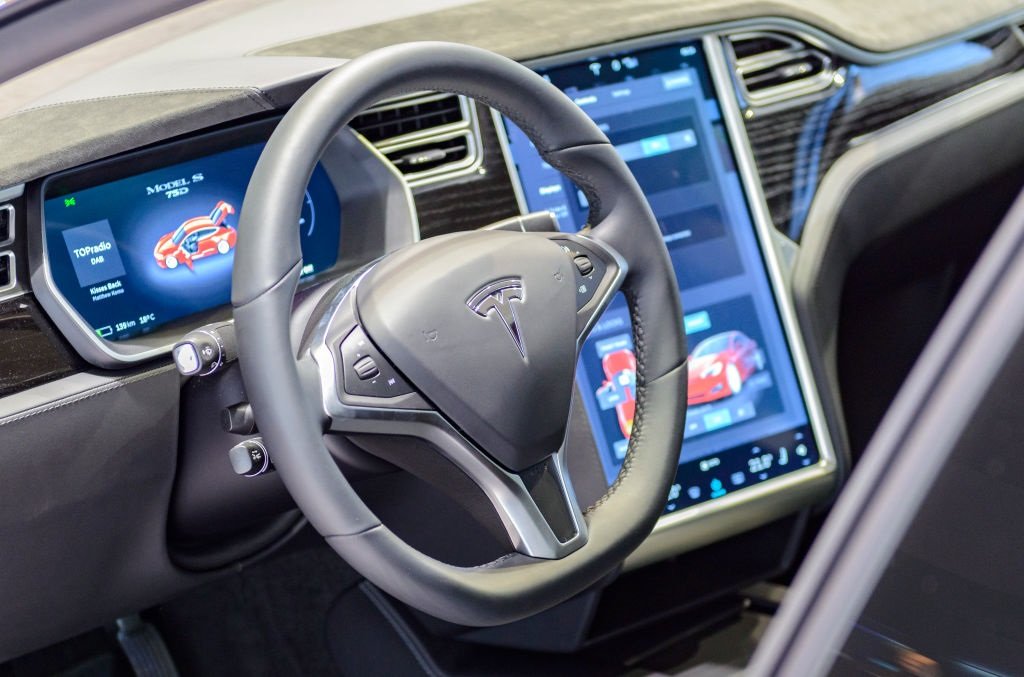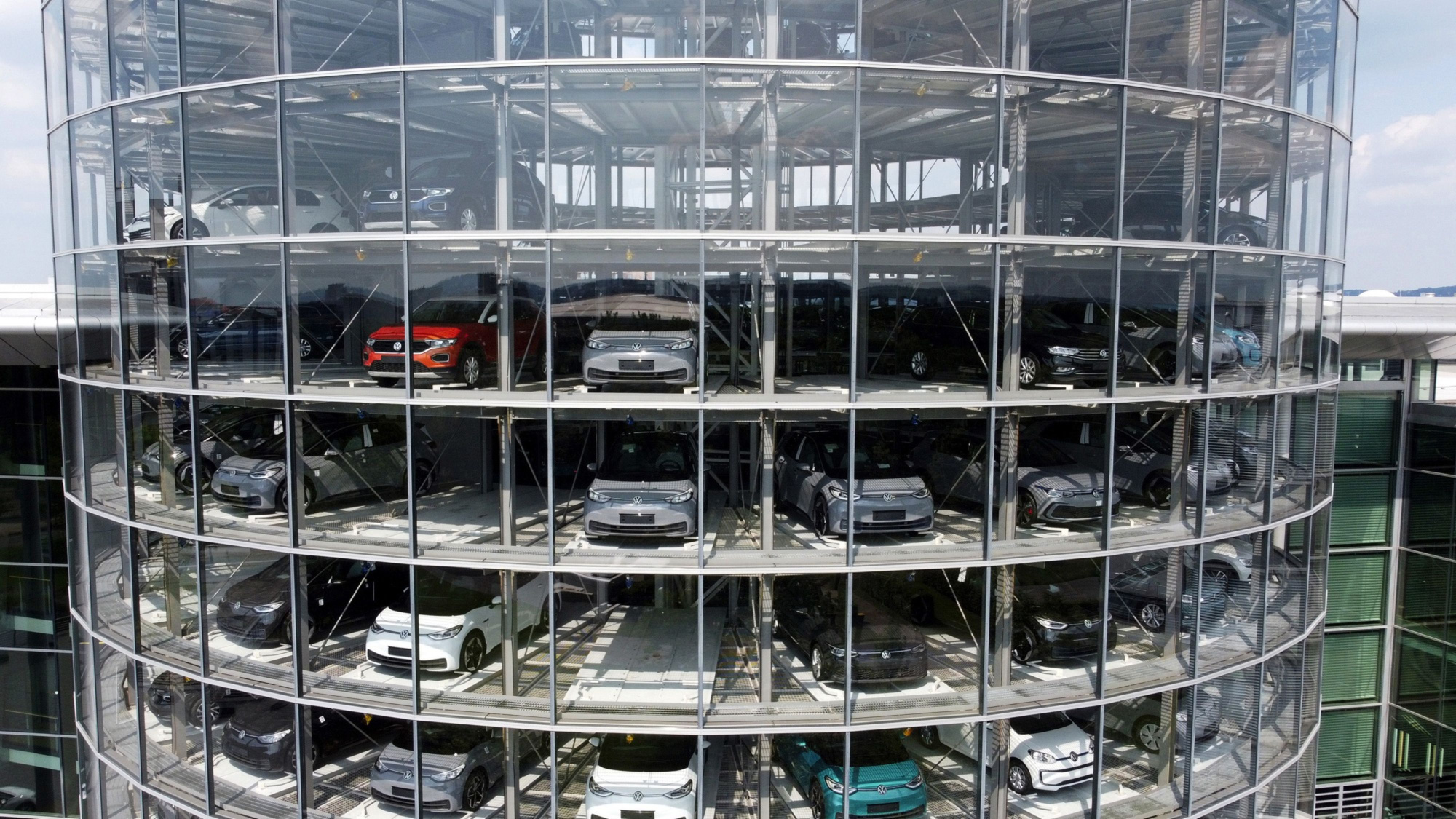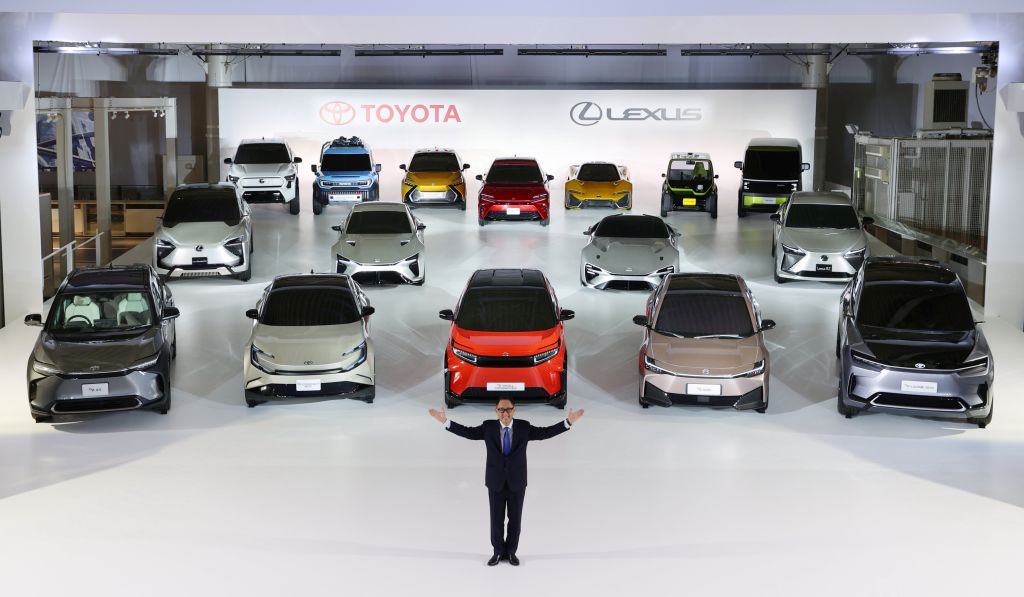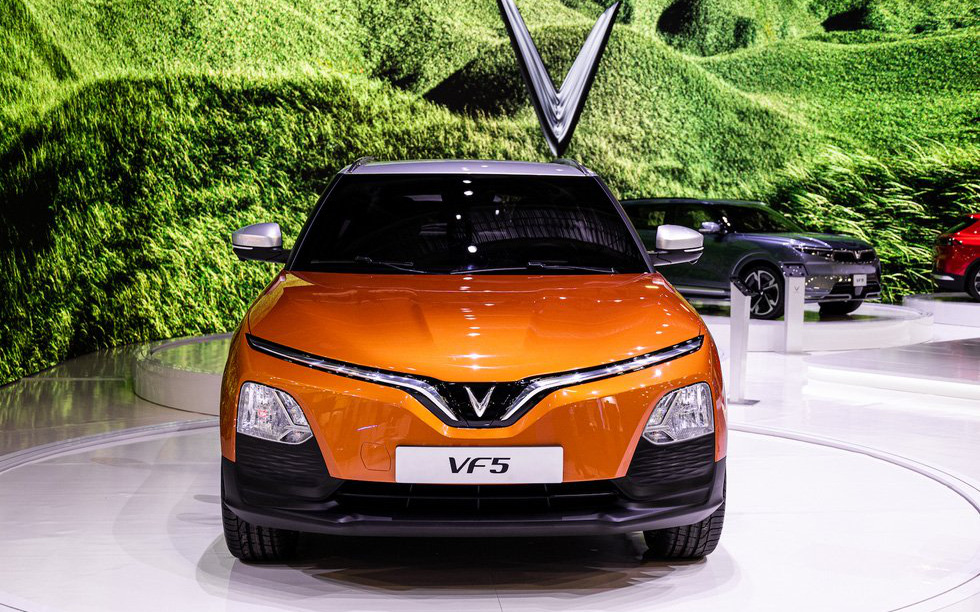After decades of silence, the battle for control of the auto industry’s future is getting more interesting than ever.
Tesla, a young name, is a pioneer and is dominating the first rounds of the new energy automobile era. In just one year, from being a little guy in the world auto industry, Tesla’s market capitalization has been larger than all of its competitors combined.
But the old giants of the industry are not left alone. Volkswagen AG and Toyota Motor – two of the largest automakers in the world today with annual sales 10 to 11 times those of billionaire Elon Musk’s company – have realized that the era of The battery car has arrived, and if it’s slow, an end like Nokia’s when Apple entered the mobile phone market could happen to them.

Tesla is forcing major car manufacturers around the world to change
Volkswagen’s Big Gamble
The company that shows greater determination to take down Tesla is Volkswagen (VW). On December 9, VW CEO Herbert Diess announced a $100 billion plan for software development and electric vehicles over the next five years.
This huge amount of money is spent despite VW’s electric car sales in 2021 reaching only 322,000 units, just over a quarter of the target of 600,000 units that they set. Besides, the electric car models that the company plans to launch in the near future – ID.3 and ID.4 – will be popular models rather than luxury cars like before.
Not stopping there, the ID.3 and ID.4 frames will also be reused by VW for a total of 27 different electric vehicles until the end of 2022. These models are also manufactured in 8 factories. different parts of the world – including in the US, China and Germany – where there are or will be Tesla factories. These plans show that VW is trying its best for the current electric car race.

VW plans to invest up to 100 billion USD to bet big on electric cars
Toyota – better late than never
Toyota has long sought alternatives to fossil fuels, but Toyota is pursuing a more diversified approach with hybrid, battery-powered, and hydrogen-powered vehicles. Therefore, Toyota was even considered a latecomer when their first mass-market electric car did not appear until the middle of this year.
But just a few weeks after introducing a hydrogen-fueled car, Toyota surprised everyone at a recent press conference in Tokyo Bay by introducing five electric models standing behind it. And yet, after a brief introduction of these models, the company said that there are 11 other battery electric car models that will be launched in the near future. The show ended with the company’s plan to launch 30 electric vehicles by the end of the decade.
The total amount spent by Toyota in the electric car race is $70 billion, with a quarter of that going to all-battery models. Toyota’s goal is to sell 3.5 million electric vehicles a year by the end of the decade, nearly double the target the company set seven months ago.

Hyundai, another big name in the world auto industry, also shows how electric vehicles will have a certain future in the near future. Last September, the company said that by 2035, all the cars it sells in Europe will be electric. By 2040, vehicles with internal combustion engines will also be phased out worldwide.
Andy Palmer, former head of Aston Martin and Nissan said:When the world’s two biggest automakers decide to go all-in on electric vehicles, there’s no need to speculate about the future of the auto industry – the mainstream will be electric.Mr. Palmer is also often referred to as the “Godfather of electric vehicles” after helping develop the Japanese automaker’s Leaf line of electric vehicles.
VinFast – give up petrol cars, all electric cars
When the giants that went before are all leaving the “gasoline car” train, is it still reasonable for a newcomer to enter the auto market like VinFast to continue clinging to it? Whether the plans of the aforementioned giants succeed or not, it shows that the future of electric vehicles completely dominating the market is certain. And it’s come very close.
But giving up the production of gasoline cars completely is very difficult, especially for the giants of the world. Such a decision would affect their worldwide supply chain as well as the hundreds of millions of other global customers who use their vehicles every day. Not only that, such a decision could also disrupt the funding source for the ongoing research and development of electric vehicles.

Meanwhile, VinFast is less bothered about this. Just entering the car manufacturing industry not too long ago, in fact, the scale of VinFast’s supply chain and the number of customers using petrol cars is not large enough to cause negative impacts on the transition to cars. electricity.
Besides, if VinFast does not focus entirely on electric vehicles soon, the sales and scale of VinFast’s gasoline car business may “eat” its own electric vehicle production efforts – especially when the company has build a massive infrastructure system to support the electric vehicle segment. The company said that it has now completed the installation of phase 1 charging ports and continues to develop charging systems in all provinces and cities across the country.
What’s more, the company’s commitments to customers show that if EVs are not abandoned soon, the damage will be even worse.
Not only is the company committed to continuing care and after-sales programs for current VinFast car users, the company is also committed to supporting customers who want to change from petrol cars to electric cars under the “Exchange old for new” program. as well as refund the deposit for customers who order petrol cars.
Currently, in addition to the VF e34 that has been delivered to Vietnamese customers, VinFast has just introduced 5 other electric car models at the Los Angeles Auto Show 2021 and CES 2022. The launch of a series of new electric car models. As well as the supporting infrastructure, VinFast has carefully prepared for its sudden decision.
Refer to Bloomberg
.
